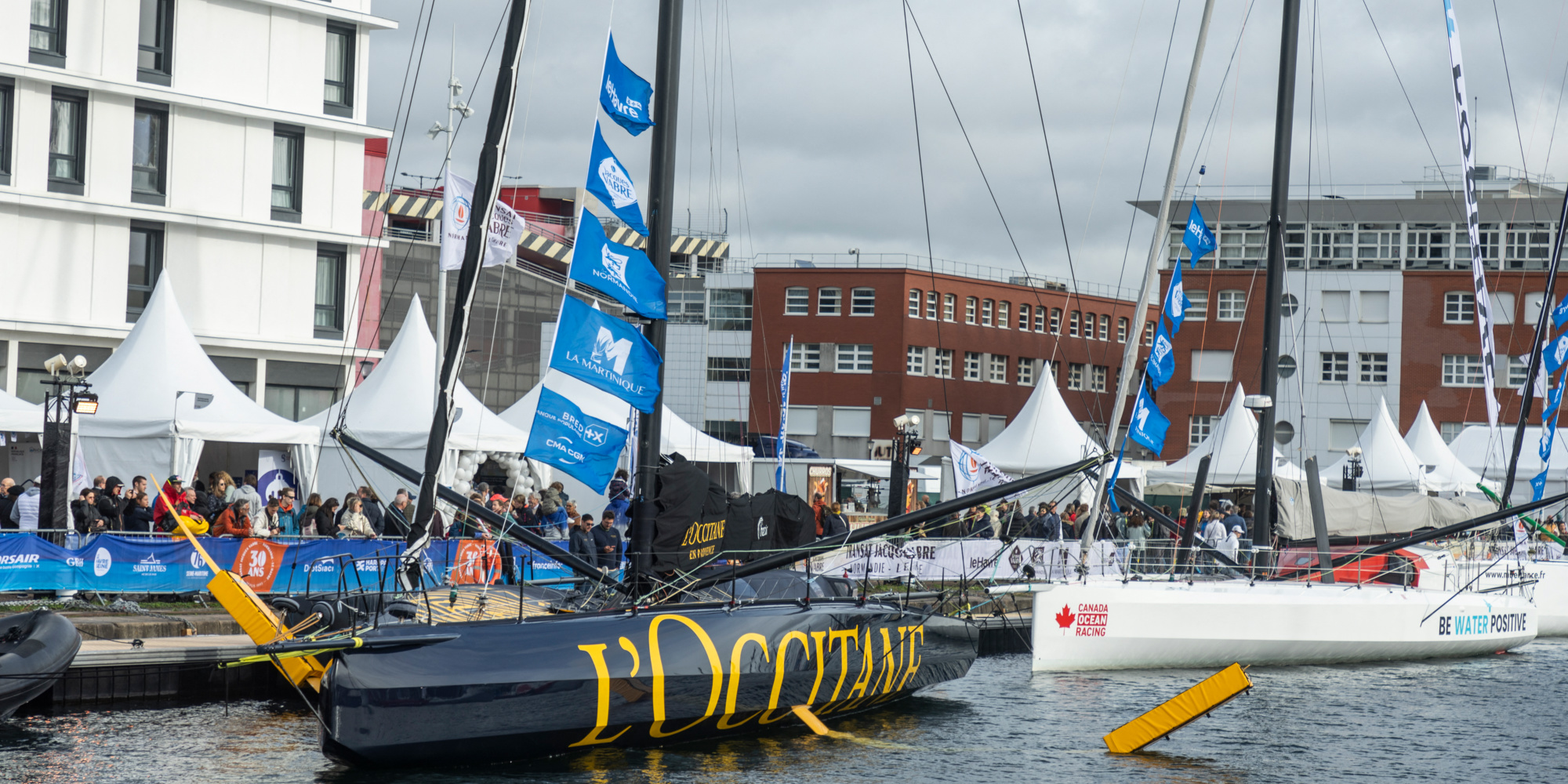“Rare, very powerful, dangerous.” The start of the 16th edition of the Transat Jacques-Vabre, a famous double-handed race created in 1993, was given on Sunday off the coast of Le Havre in rough seas which forced half of the boats to stay at the dock. Created in 1993, the double-handed transatlantic has celebrated its thirtieth anniversary in a chaotic atmosphere. A very violent weather phenomenon forecast in the Bay of Biscay on Wednesday pushed the organizers to postpone the departure of almost half of the fleet until the last minute.
“A break in this system, with a boat that would no longer be maneuverable… there is no possible escape,” said Francis Le Goff, race director, at a press conference on Sunday morning. “We have more than 8 meters of low water at sea from Wednesday and 10 meters on Thursday with gusts of nearly 120 km/h,” commented meteorologist Christian Dumard. The monohulls used in the Vendée Globe were therefore forced to stay at the dock.
For the navigator Maxime Sorel (VandB – Monbana – Mayenne), “the first ten Imoca could have barely passed in difficult conditions but the rear of the fleet did not do it”. “I admit that I didn’t sleep very well given the forecasts, there would inevitably have been 1 or 2 who would have had serious damage,” said British skipper Samantha Davies (Initiatives Cœur).
Ultimate on the way
The start was given at midday for the three other classes of boats entered – Ultim, Ocean Fifty and Class40, i.e. 55 vessels – off the coast of Le Havre. Under a cloudy sky, the giants of the Ultim seas began their two-week journey to Martinique at 1:05 p.m., transformed into a race against time to avoid the predicted storm.
At the sound of the gun, the SVR Lazartigue, helmed by François Gabart and Tom Laperche, and the Maxi Edmond de Rothschild, led by Charles Caudrelier and Erwan Israel, took the lead of the fleet, reaching at times more than 70 km/h in two-meter waves. “It’s good to have a fast boat in these conditions (…) Afterwards it will still be tough conditions for us”, said Anthony Marchand, skipper of the Ultim Actual. The 32 meter long maxi-trimarans are the fastest class of boats to have taken the start. “And if we don’t have a technical glitch, there is a good chance that we will avoid the big depression,” says Marchand.
Forced stopovers
Unprecedented in the history of the race, the Class40s and the Ocean Fiftys, more fragile and slower boats, also left on Sunday, a few minutes after the Ultims, but will all have to make a stopover in Lorient at the start of next week to let them pass. the blow of tobacco.
“It’s more like a cyclone than a depression! It’s rare, very powerful and dangerous,” said Xavier Macaire (SNEF group), at the helm of a Class40. “The start of this second stage will be given as a fleet and the ranking established on arrival in Martinique at the sum of the times of the two stages,” specified Francis Le Goff.
“We did not have the capacity to offer this format with a stopover in the Imoca class for reasons of space in the port,” he added. The skipper pairs concerned will therefore have to be patient. On Sunday, no new departure date had been given by the organization for the Vendée Globe monohulls. “We are a little frustrated to see everyone else going to play today, we have the impression of being punished and deprived of starting (laughs) but that’s life and we have to accept it”, philosopher Samantha Davies .
